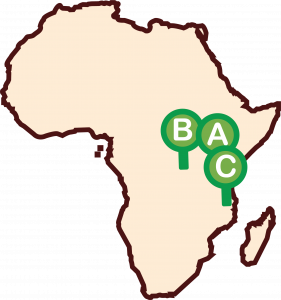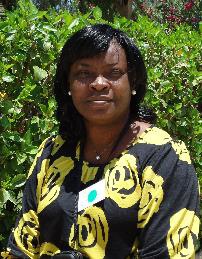Project Leads
The Problem
Researchers working in the life sciences are generating data of increasing size and complexity due to modern high throughput genome sequencing and molecular techniques. Interpreting this/such data is essential to understand health and diseases and to develop solutions to improve African and global health. Unfortunately, few universities in eastern Africa offer advanced degrees (Master’s or PhD) in Bioinformatics training and those that do often lack sufficient teaching faculty, infrastructure and/or active, relevant and stimulating research environments where the students can be exposed to high quality data and emerging bioinformatics applications and developments. Considering this and also the inadequate modern research infrastructure in Africa, there is an ever-increasing need to develop the human and physical capacity for bioinformatics research in Africa to enable the interpretation of valuable African genomics data.
Project Strategy
- Establish a collaborative network of three universities and four research institutes in eastern Africa to deliver an excellent harmonized MSc program in Bioinformatics training and research mentorship.
- Generate a cohort of at least 48 highly trained bioinformatics master’s graduates who can engage in international collaborations and lead analysis of data generated by H3Africa and other high-profile projects.
Potential Impact
The increasing number of highly qualified bioinformaticians trained through EANBiT will have the knowledge and skills to analyze genomics, genetic and environmental data relevant to cross cutting health issues in eastern Africa. They will be competent to engage in equitable collaborations as highly qualified Bioinformaticians with peers in Africa and elsewhere, to lead research, participate in the analysis of complex datasets and train the next generation of bioinformaticians. As genomic data grows in influence on health research and practice, growing the generation of young Africa scholars with this competence is essential.
Program highlights include:
- Harmonized MSc. in Bioinformatics curricula that have been developed and established at Pwani University in Kenya and Makerere University in Uganda
- 32 MSc. in Bioinformatics fellowships have been awarded in 03 different cohorts from 2019 to date.
- Eight (8) out of nine (9) of the Cohort 01 fellows graduated in June 2021. The ninth has successfully defended their thesis and is finalizing corrections for final submission.
- Cohort 01 fellows are currently transitioning to PhD (2), and employment (3).
- One cohort 02 fellow has been awarded a PhD fellowship starting September 2021. The cohort fellows are currently finalizing their MSc. projects.
- Three (3) bioinformatics residential trainings have been conducted (01 Virtually) with 90 participants in total.
Project Sites

A: Kenya
International Centre of Insect Physiology and Ecology (ICIPE), the KEMRI Wellcome Trust Research Programme, Pwani University, Biosciences eastern and central Africa-International Livestock Research Institute (BecA-ILRI hub)
B: Uganda
Makerere University, Uganda Virus Research Institute
C: Tanzania
Muhimbili University of Health and Allied Sciences





